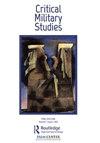爱尔兰国防军与一位女权主义研究者的沉默
Q1 Arts and Humanities
引用次数: 0
摘要
本文章由计算机程序翻译,如有差异,请以英文原文为准。
The Irish defence forces and the silencing of a feminist researcher
ABSTRACT As a feminist researcher undertaking my PhD field research from 2006 to 2009 with officers in the Irish Defence Forces, I experienced the gender discrimination I was endeavouring to make visible. My PhD study, borne out of UNSCR 1325 and the Women, Peace and Security agenda, was testing claims by the United Nations that the inclusion of women peacekeepers brings important benefits to civilian women populations in mission contexts. The study adopted discourse analysis and included equal numbers of interviews with women and men peacekeepers and observation of Irish troops during the UNMIK/KFOR mission in Kosovo. At each stage of my research journey into the Irish Defence Forces I encountered barriers to continuing my study which had negative impacts on me personally and professionally. The culmination of which was them attempting to publicly discredit my research findings. This paper explores the process by which institutions attempt to silence feminist researchers and what we can learn about gender, knowledge and power from these affective experiences and how collective storytelling is key to breaking the silence.
求助全文
通过发布文献求助,成功后即可免费获取论文全文。
去求助
来源期刊

Critical Military Studies
Arts and Humanities-History
CiteScore
1.90
自引率
0.00%
发文量
20
期刊介绍:
Critical Military Studies provides a rigorous, innovative platform for interdisciplinary debate on the operation of military power. It encourages the interrogation and destabilization of often taken-for-granted categories related to the military, militarism and militarization. It especially welcomes original thinking on contradictions and tensions central to the ways in which military institutions and military power work, how such tensions are reproduced within different societies and geopolitical arenas, and within and beyond academic discourse. Contributions on experiences of militarization among groups and individuals, and in hitherto underexplored, perhaps even seemingly ‘non-military’ settings are also encouraged. All submitted manuscripts are subject to initial appraisal by the Editor, and, if found suitable for further consideration, to double-blind peer review by independent, anonymous expert referees. The Journal also includes a non-peer reviewed section, Encounters, showcasing multidisciplinary forms of critique such as film and photography, and engaging with policy debates and activism.
 求助内容:
求助内容: 应助结果提醒方式:
应助结果提醒方式:


